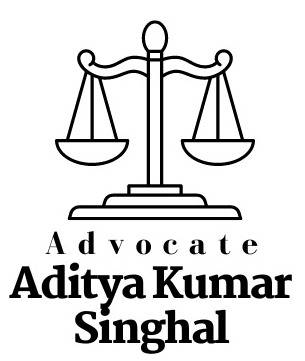.jpg)
Introduction to Alternate Dispute resolution system in India
Welcome to our legal blog, where we delve into the intricacies of the law to provide you with valuable insights and guidance. Today, we'll be exploring the concept of Alternate Dispute Resolution (ADR) and its significance in India's legal landscape.
Introduction to ADR: Alternate Dispute Resolution (ADR) refers to mechanisms outside traditional litigation through courts to resolve disputes. ADR methods are characterized by their flexibility, informality and efficiency in resolving conflicts. They offer parties a range of options to settle disputes amicably, often without the need for lengthy court proceedings.
Types of ADR:
1. Negotiation: In negotiation, parties directly communicate with each other or through their legal representatives to reach a mutually acceptable agreement. It's a voluntary and informal process, allowing parties to control the outcome of the dispute.
2. Mediation: Mediation involves a neutral third party, the mediator, who facilitates communication between disputing parties and assists them in reaching a mutually satisfactory resolution. The mediator does not impose a decision but helps parties explore options and find common ground.
3. Conciliation: Similar to mediation, conciliation involves a neutral third party, the conciliator, who assists parties in resolving their dispute. However, the conciliator may play a more active role in proposing solutions and suggesting compromises to help parties reach an agreement.
4. Arbitration: Arbitration is a more formal ADR process where parties submit their dispute to one or more arbitrators, whose decision, known as an award, is binding on the parties. Arbitration proceedings are conducted in a manner similar to court trials but offer greater flexibility and confidentiality.
Significance of ADR in India: The adoption of ADR mechanisms in India has gained significant momentum in recent years due to various factors:
- Time and Cost Efficiency: ADR processes are generally faster and more cost-effective than traditional litigation, saving parties time and resources.
- Flexibility and Informality: ADR methods allow parties to tailor the dispute resolution process to their specific needs and preferences, promoting a more collaborative and less adversarial environment.
- Reduced Case Backlog: By diverting disputes away from overburdened court systems, ADR helps alleviate case backlog and promotes efficient judicial administration.
- Preservation of Relationships: ADR fosters constructive dialogue and cooperation between parties, preserving relationships that may otherwise be strained by adversarial litigation.
Conclusion
Alternate Dispute Resolution (ADR) offers a range of effective and efficient mechanisms for resolving disputes outside traditional court proceedings. By embracing ADR, individuals and businesses can achieve timely, cost-effective and mutually satisfactory resolutions to their conflicts. As ADR continues to evolve and gain prominence in India's legal landscape, it presents valuable opportunities for promoting access to justice and enhancing the efficiency of dispute resolution mechanisms.
For expert guidance and assistance in navigating ADR processes or any other legal matters, consider consulting with experienced professionals like Adv. Aditya Kumar Singhal. With their expertise and dedication, they can help you explore ADR options and achieve favorable outcomes tailored to your needs.
Stay tuned for more informative content on legal topics and don't hesitate to reach out with any questions or inquiries. Remember, empowered with knowledge, you can navigate the complexities of the law with confidence and clarity.


